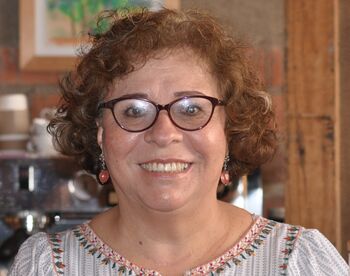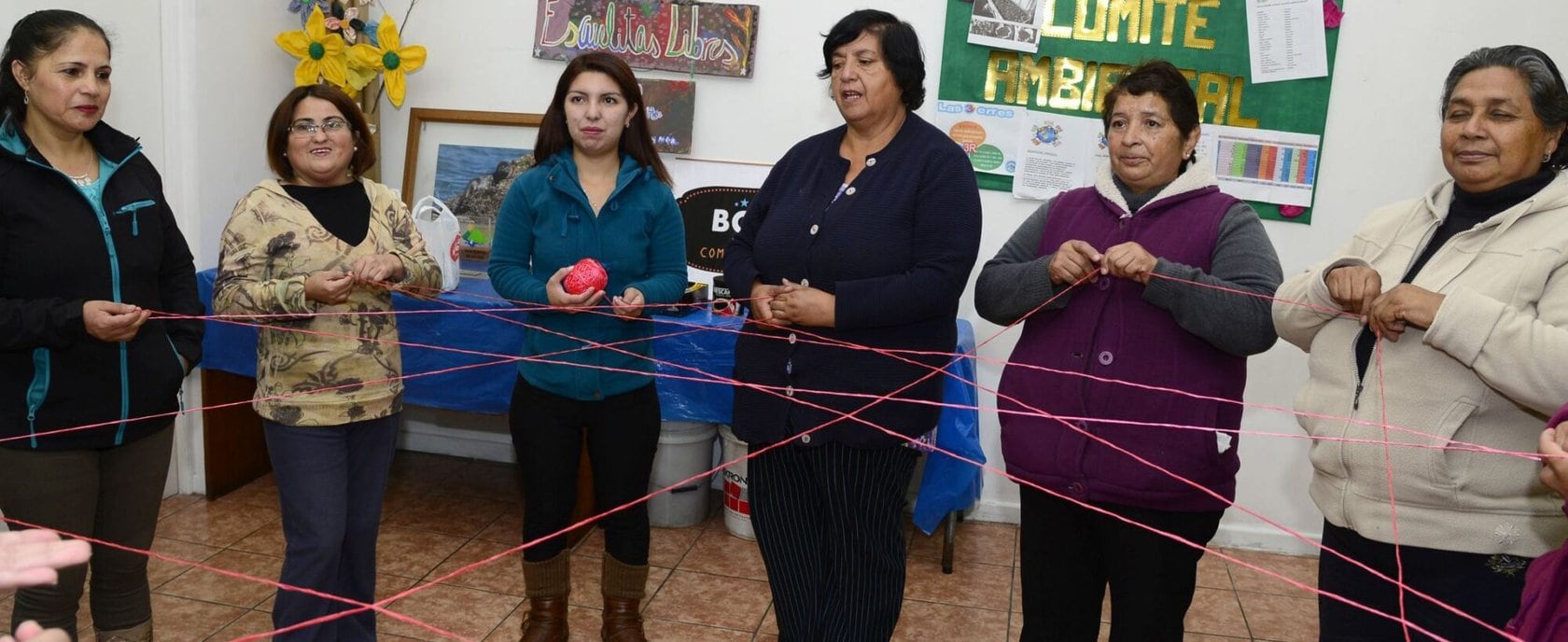
Jannet Villanueva
Coordinator Latin America (Bolivia and Peru)

Project Number: 476.1020
In the strategic area of education, the aim is to teach basic skills such as reading and writing, and to support people in actively participating in social and political processes. The conscious promotion of (indigenous) women and girls is particularly important to us. Their ability to have a say makes a significant contribution to the development of society and the countries in which they live into plural and socially inclusive democracies. Particularly in countries with inadequate formal education and a lack of opportunities for further education, such as Peru, the education offered by our project partners is an important supplement to the state school and education system. However, even in countries with better developed education systems, such as Chile, these measures are of great importance, as the skills to be promoted are often not included in the curricula of formal education.
In the field of education, our project partners in Peru work in various rural provinces in the department of Puno. Here, the poverty rate is almost 40 percent. A large part of the population is of indigenous origin. Aymaras and Quechuas in particular are strongly represented. Although Peruvian law provides for extensive citizen participation and recognizes the rights of indigenous peoples, in practice this is done inadequately. The state often continues to discriminate against and patronize them. Authoritarian and patriarchal officialdom is the order of the day. Social conflicts (including environmental conflicts) occur again and again, occasionally escalating into violent protests. Indigenous women in the highlands experience racism, discrimination and machismo almost daily. While they are in great demand as "folklore objects" and adorn tourism brochures in glossy pictures, they are perceived as disruptive in their role as active citizens who hold the state accountable for ensuring access to infrastructure, water, food and income for their families and their village community. When strikes occur, the media in Lima often portray them as ignorant and unwilling to learn, as "nonentities" or "terrorists" who stand in the way of the nation's development. Indigenous women suffer particularly from the situation, and their opinions and petitions are rarely heard by authorities and decision-making bodies.
To make matters worse, in Puno about 16 percent of women are illiterate, and at the same time women in rural areas often take on the role of head of the family due to low employment opportunities, which causes men to leave their families for months at a time to seek work in mines or in the city. The challenges in the daily lives of many women and girls in Puno are therefore particularly high.
Against this backdrop, Mission 21, with the help of various long-standing partners, promotes various educational programs that are primarily aimed at indigenous women and girls in rural Puno, thus empowering them for their everyday lives. However, the educational programs are also available to interested men and boys.
The women from the poor neighborhoods around Concepción in Chile are exposed to great economic insecurity. In addition, many of them also have little schooling, have low self-esteem and are solely responsible for supporting the family. In addition, most families in the poor neighborhoods are dependent on the state health care system. This means that they have to pay up to half of the costs for medicines, which they often lack, and often have to stand in line for hours for a medical consultation. In addition, they are insufficiently informed about their rights regarding social and health insurance.
All projects could be carried out without interruptions due to Covid-19; the tutoring for school children who were excluded from classes during the pandemic is very popular and our project partner Alfalit is overrun with requests. Alfalit is looking into the possibility of expanding its tutoring services for school children from rural Chupa in the department of Puno for 2023 in order to promote the educational opportunities of even more children.
Nevertheless, this year an exceptionally severe drought is causing great concern to our partners in the southern Andes. Due to the lack of rain, thousands of alpacas, vicuñas and sheep have already died in agony by the end of November. The central government has therefore declared a state of emergency at the beginning of December 2022. The authorities expect higher crop losses and shortfalls in alpaca wool production, which could hit households of indigenous and smallholder village communities particularly hard. Our partners are in close exchange with local authorities on the ground and are lobbying for the implementation of special measures to reduce the disaster risk of drought. We are also exploring the possibility of funding additional project activities such as the construction of water catchment basins, the installation of solar-powered water pumps and the promotion of groundwater access to mitigate the exceptional situation.
The disillusionment and disappointment about the great social rejection of the progressive constitutional proposal (62%) is clearly felt among our partners. The project activities could be implemented as planned and reach the target population.

33.035 million inhabitants (2021)
23.5% of women in rural Peru can neither read nor write
17.5 million inhabitants
33% of income is generated by the richest 1 percent of Chile's population
Project budget 2024
CHF 170'200
Mission 21
Protestant Mission Basel
PO Box 270
Missionsstrasse 21
4009 Basel, Switzerland
Tel.: +41 (0)61 260 21 20
info@mission-21.org
Donation account Switzerland:
IBAN: CH58 0900 0000 4072 6233 2
Tax exemption number:
CHE-105.706.527
Donation account Germany:
Savings Bank Lörrach-Rheinfelden
Swift BIC: SKLODE66
BLZ: 683 500 48
IBAN: DE39 6835 0048 0001 0323 33
Account No. : 1032333